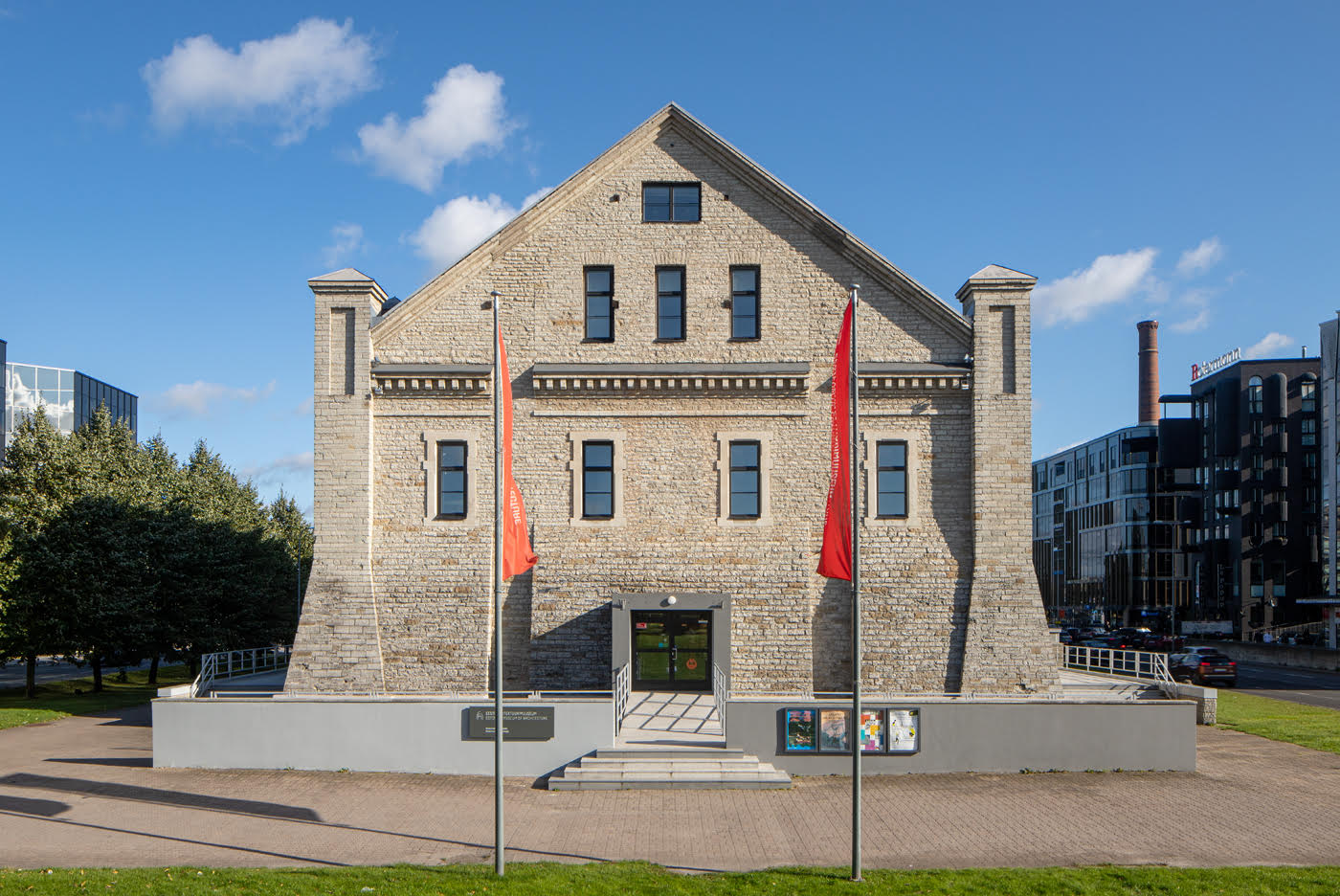Heili Volberg, 1970. EAM 51.1.4
Pärnu Maritime School
In 1970, architect Heili Volberg designed an extension to the dormitory of the maritime school located by the moat in Pärnu. Spacious classrooms, an auditoorium and a sports hall, even a hairdresser’s office, was planned in the educational building. Pärnu Maritime School was closed and the project was not completed. The school dormitory was reconstructed and the Viiking health center was opened in the building at the beginning of August 1993. The boards of Pärnu Maritime School were designed by interior architect Aate-Heli Õun using the collage technique. The work was donated to the museum by architect Heili Volberg-Raig in 2013. Text: Anna-Liiza Izbaš
(klick on the picture to see more illustrations)
August Volberg, Heili Volberg, 1958. EAM 31.1.37
Writers’ House
The Writers’ House in Tallinn old town was opened in the spring of 1963. The project of the four-storey building was designed by the architects August and Heili Volberg at the national design institute “Estonprojekt” in 1958. The seemingly laconic Writers’ House is characterized by the rationality typical of modernism. The regularly spaced windows indicate the different functions of the building – spaces for public use are located behind the large windows, private living spaces are hidden behind the smaller three-part windows. The building is connected to the historical architectural environment by a high pitched roof that fits the rooftop landscape of the old town. On the ground floor next to Harju Street, there was a book store called “Lugemisvara” with large display windows. On the corner of Harju and Vana-Posti streets, the cafe “Pegasus” with a modern interior design is located on three floors. A vestibule with a wardrobe and auxiliary rooms were originally planned in the first floor. On the next two floors are the halls of the cafe, the windows of which offer a view of St. Nicholas Church, the verdant green area and the Eduard Vilde monument. The floors of the cafe are connected by a spiral staircase. The premises of the Estonian Writers’ Union and a 150-seat meeting hall with an expressive black ceiling are located in the three-storey part of the building facing Kuninga Street. There was also space for the editors of the “Looming” magazine and the Literary Fund. In addition to the public function, two to five room apartments for writers and their families were planned in the building. In the larger apartments, one room was planned as a writer’s workspace. During the later reconstruction, the fifth floor of the house, under the roof, was built. Text: Anna-Liiza Izbaš
(klick on the picture to see more illustrations)









